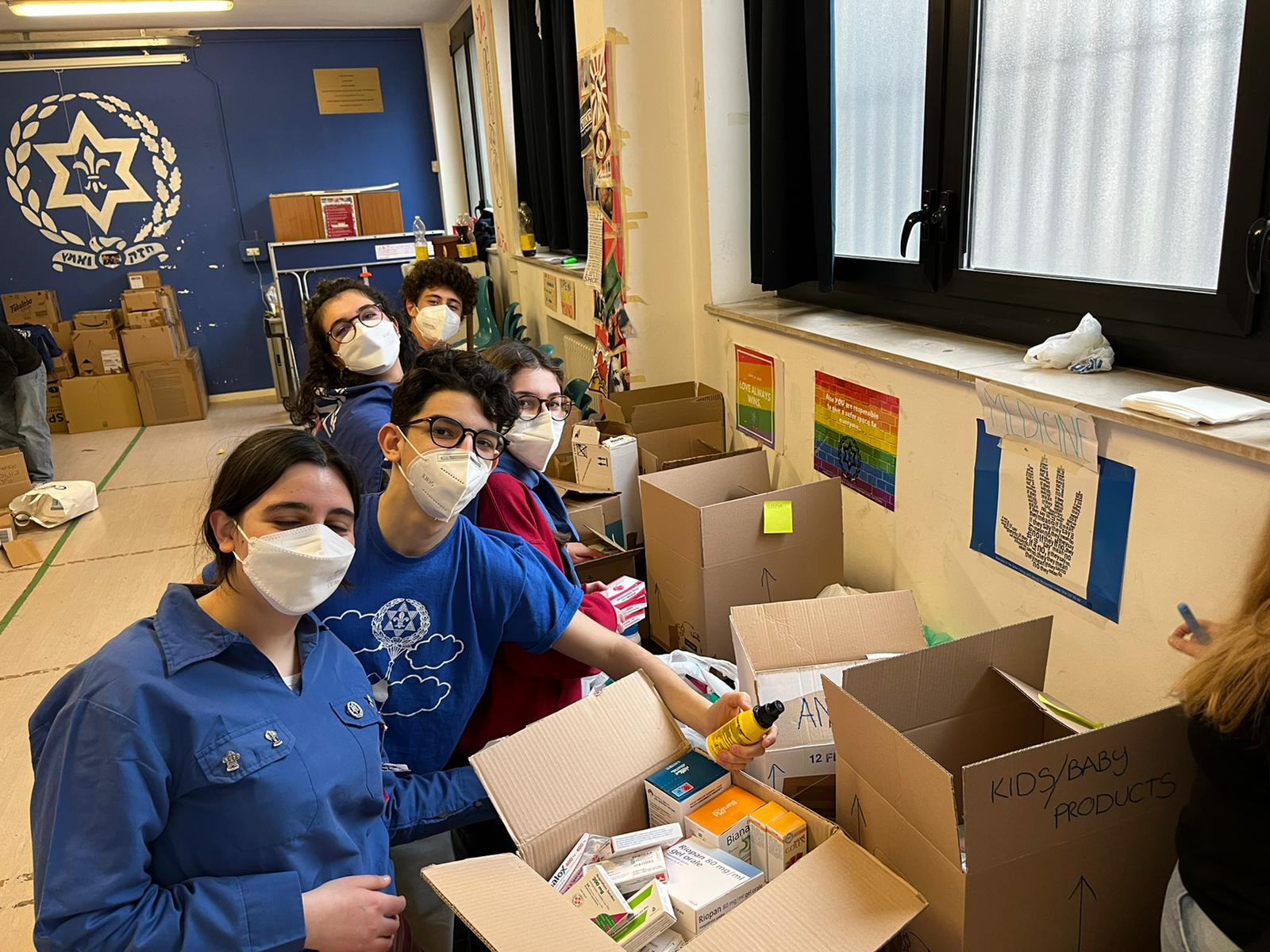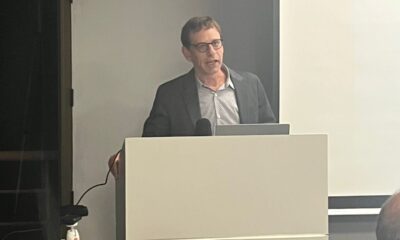
News

Italian student pleads with SA to help Ukraine chaverim
Published
2 years agoon
Like many Italian youngsters, 19-year-old Viola Turone looked forward to travelling as a high school exchange student. But unlike many of her peers, she chose to spend six months in Cape Town, where she attended Herzlia High School.
There, she formed bonds that would stretch across the oceans and now she’s calling on the South African Jewish community to help her compatriots in Ukraine.
As a member of the youth movement, Hashomer Hatzair, Turone is working daily to help her friends in the east who are enduring the war. Some are hiding underground while others are refugees on the run. From one day to the next, these youngsters went from being teenagers enjoying their youth movement to escaping an invasion. Turone and her friends even helped some of their compatriots escape to Warsaw.
Turone, who lives in Milan, was in Poland when the first refugees began arriving. “My kvutza [year group at Hashomer] was in Poland when the war started. We were there for a seminar to visit concentration camps and explore the cities that used to have big Jewish communities. While in Poland, we saw the arrival of the first refugees, the traffic and lines for petrol. Seeing these things firsthand made everything feel a lot more real.
“Our movement has three kenim [centres] in Ukraine,” she says. “We’ve all met them during seminars and online activities – they’re kids and young adults like us who used to lead normal lives in school and university. Leaving them alone wasn’t an option. We started out helping just them, and then as the situation worsened, many of us went to Poland and started helping in refugee camps on the border while also sending things into Ukraine for the people still there.”
Turone hopes the South African Jewish community can support these efforts.
She explains how she came to be close to the Jewish community in Cape Town. “It’s quite common in Italy to spend a semester or year abroad during the fourth year of high school, at age 17. The most popular destinations among English-speaking countries are the United States and United Kingdom, but I became curious about South Africa.
“I felt there was no better place to have an interesting experience than in a beautiful country with a completely different culture and history to the one I grew up in. Through the Jewish community in Milan, we found a Jewish family in Cape Town willing to host me for six months.
“I arrived in Cape Town on 1 July 2019 and fell in love with the city right away. My host family was incredibly nice and helpful, especially during the first adjustment period. I went to Herzlia, where I met a group of friends that I still talk to daily more than two years later. I learnt so much in my six months there. I was so in love with South Africa that I came back to visit in September 2021, hosted by some high school friends.”
In her last two weeks of living in South Africa, Turone went to Habonim camp, “because all my friends were going and because I grew up in Hashomer Hatzair, a similar Jewish youth movement in Italy. When I was looking for ways to spread the story of my chaverim/ot in Ukraine, I instantly thought of the South African Jewish community.”
She says Hashomer Hatzair in Ukraine has hundreds of chanichim (members that are children). “Some remained to hiding in basements in Kharkiv, Lviv and other cities, and some became refugees. On WhatsApp groups, we have been given a glimpse into what life looks like in the middle of a war.
“Valera from Kharkiv sent a picture of a missile that landed not far from her shelter. Katya told us about the 10-hour wait at the Polish border. She said that if she could have stayed in Ukraine to assist medically, she would have, but she had to take care of her family. We received videos of residential buildings turned to dust by bombs and pictures of kids readjusting to life in underground shelters.
“Teenagers are having to worry about things no one their age should have to think about. One time they shared with us the method they’ve adopted to keep track of one another after an area of the city has been bombed – they have a group chat where everyone sends a ‘+’ sign if they’re still alive and well. It’s horrible, but it shows the kind of worries they have on a daily basis now.”
She says that on the first day of the invasion, her friend, Denis’ apartment was reduced to rubble shortly after he escaped. “Then, he and his neighbours teamed up and tried their best to survive together. Many wanted to leave the city but had older relatives who couldn’t withstand a trip like that.
“There’s no way to quantify what the most traumatic experience has been for them because they haven’t even had time to reflect on what has happened to their lives,” she says. “Most of them are still living this nightmare and they have no idea when it will end.”
She says helping people escape entails “sending cash into bombarded cities, renting apartments and helping people prepare safe places to hide and find refuge. Many people call us regarding loved ones so that members of Hashomer can help locate them. Volunteers also help those who can’t get to the train or find a better shelter.”
As an educational youth movement, another important part of their work is to provide activities for young refugees. “Last Thursday [10 March] we sent our first international delegation to the refugee station in Przemyśl, next to the border of Ukraine and Poland. Hashomer, with the Natan humanitarian aid organisation, set up a kindergarten area for children. We’re working to send them materials to keep the children as happy as possible in this situation.”
Knowing what her compatriots are enduring has been tough. “It’s upsetting to think that the people who escaped are never going to get their lives back. When someone escapes a war-stricken country, it sounds like a success story, but it really is much more complex than that. Most people initially left thinking it would be only temporary – they’d be away for a month and then they’d get back to their homes. But many of their homes aren’t there anymore.”
To the community, she says, “In Italy, we’re much closer to this war than South Africa, but I think the stories of my chaverim/ot will resonate with everyone there just as much as they did here. I hope that by reading what they’re going through, people will be compelled to help.”
To help Viola support her friends in Ukraine, visit: tinyurl.com/DonateHHUkraine
To follow the youth movement’s updates of the situation in Ukraine, visit tinyurl.com/UpdatesHHUkraine










